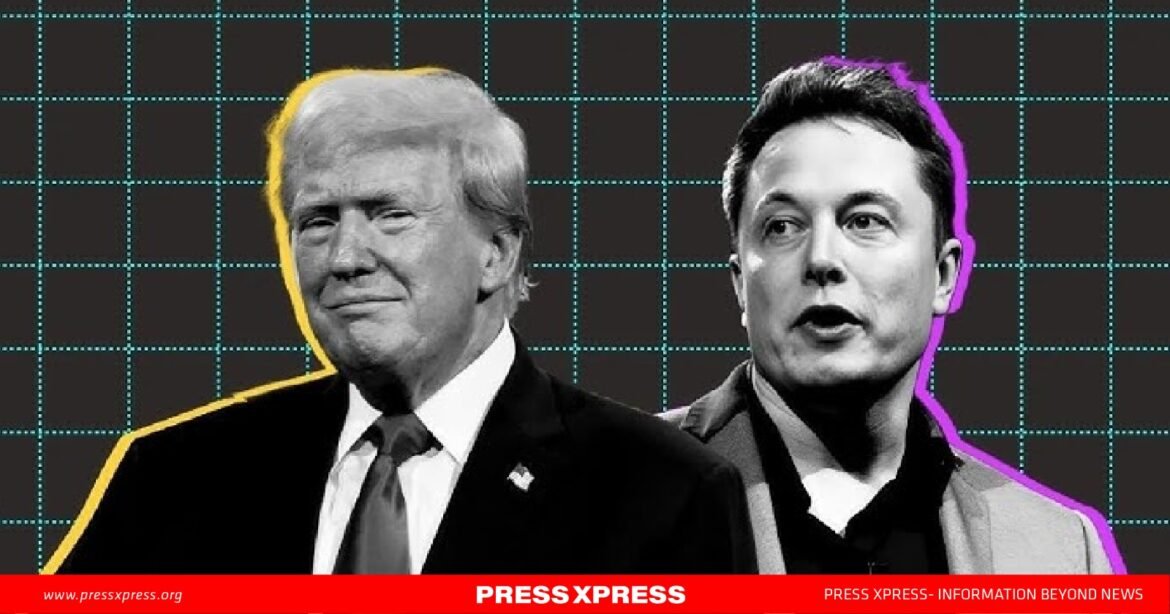As Donald Trump continues to assemble his team for his second term, the role of Treasury secretary has become a flashpoint for debate among his allies, advisors, and the financial elite. Two prominent names have emerged in the race: Howard Lutnick, the outspoken CEO of Cantor Fitzgerald, and Scott Bessent, founder of Key Square Capital Management. While both candidates are aligned with Trump’s economic philosophy, their contrasting styles and approaches have divided Wall Street and the administration alike.
The stakes are high, with the Treasury secretary playing a central role in implementing Trump’s ambitious and controversial economic policies, including sweeping tariffs and debt management. Adding to the drama is Elon Musk, a key Trump ally, who has publicly endorsed Lutnick as the choice for meaningful change, igniting a broader debate about the future of America’s economic leadership. This piece unpacks the clash of ideas, the personalities at play, and the implications for the U.S. economy.
Howard Lutnick: A Disruptor or a Liability?
Howard Lutnick has positioned himself as a vocal advocate for Trump’s economic vision, particularly his protectionist trade policies. His rhetoric resonates with Trump’s base, and his close ties to the president-elect’s inner circle make him a strong contender. Lutnick has publicly championed tariffs as a tool to “restore American greatness,” a sentiment he amplified during a high-profile rally at Madison Square Garden.
Critics, however, question whether Lutnick’s brash style and polarizing persona are suited for a role that demands stability and market confidence. Kyle Bass, a billionaire investor, argued that Lutnick lacks the composure needed to manage the Treasury effectively. “Markets don’t need grandstanding; they need leadership,” Bass posted on X.
Lutnick’s supporters, including Musk, see things differently. Musk has framed Lutnick as a reformer, emphasizing his willingness to challenge “business-as-usual” practices on Wall Street. The debate over Lutnick’s candidacy highlights the broader tension between populist disruption and institutional stability in Trump’s second term.
Scott Bessent: The Steady Hand Wall Street Wants
In contrast, Scott Bessent offers a quieter, more traditional approach to economic leadership. Known for his analytical rigor and deep understanding of global markets, Bessent has garnered support from prominent investors and policymakers. His op-ed in Fox News defending Trump’s tariffs as a strategy to “stand up for Americans” reflects his alignment with the administration’s goals, albeit with a measured tone.
Bessent’s supporters argue that his temperament and expertise make him the ideal choice for a role that requires navigating economic complexities. Dan Loeb, founder of Third Point, described Bessent as “eminently qualified,” highlighting his grasp of markets, economics, and geopolitics.
However, Bessent’s perceived lack of populist appeal may work against him. Trump, who values loyalty and alignment with his broader vision, might view Bessent’s less combative approach as a liability in executing his bold economic agenda.
Musk’s Unprecedented Role in Shaping the Debate
Elon Musk’s endorsement of Lutnick has added a layer of complexity to the decision-making process. By urging his millions of followers on X to back Lutnick, Musk has effectively turned the Treasury secretary race into a public referendum. His criticism of Bessent as a “business-as-usual” choice underscores Musk’s belief that the U.S. economy needs radical change.
Musk’s growing influence within Trump’s orbit raises questions about the role of private individuals in shaping public policy. While his support strengthens Lutnick’s campaign, it has also fueled skepticism about the impartiality of the selection process. Observers note that Musk’s intervention may complicate Trump’s efforts to present his administration as unified and focused on practical solutions.
Tariffs, Inflation, and the Economic Risks Ahead
Regardless of who is chosen, the next Treasury secretary will face significant challenges in executing Trump’s tariff-heavy economic agenda. Trump’s plan to impose across-the-board tariffs, with rates as high as 60% on Chinese imports, has drawn criticism from mainstream economists who warn of inflationary pressures and weakened economic growth.
A study by the Peterson Institute for International Economics projects that these policies could push inflation to 6% by 2026 and increase consumer prices by 20% by 2028. While both Lutnick and Bessent have defended the administration’s approach, their ability to manage the fallout will be critical.
Market analysts argue that the Treasury secretary’s role may ultimately have less impact on Trump’s tariff policy, as the president has numerous levers to enforce these measures. However, the speed and manner of implementation could vary significantly depending on the leadership style of the individual chosen.
A Fractured Decision-Making Process
Trump’s deliberations over the Treasury secretary position have been anything but smooth. Initial reports suggested that Bessent was the frontrunner, but Lutnick’s eleventh-hour campaign, fueled by Musk’s endorsement, has thrown the process into disarray. Trump has reportedly considered alternative candidates, including Senator Bill Hagerty and former economic advisor Larry Kudlow, though Kudlow has declined due to health reasons.
The president-elect’s indecision reflects broader challenges within his transition team. The Treasury secretary race has become a microcosm of Trump’s administration, where competing loyalties and clashing ideologies make even straightforward decisions contentious.
The Stakes for Trump and the Nation
The choice between Howard Lutnick and Scott Bessent as Treasury secretary will define the economic direction of Trump’s second term. Lutnick represents a bold, populist approach aligned with Trump’s disruptive vision, while Bessent offers the stability and expertise that financial markets crave.
With Elon Musk’s public intervention adding to the drama, the decision has taken on greater significance, reflecting the broader tensions between innovation and tradition within Trump’s administration. Whomever Trump ultimately selects will not only shape his economic legacy but also set the tone for how the U.S. navigates a challenging economic landscape in the years ahead.


